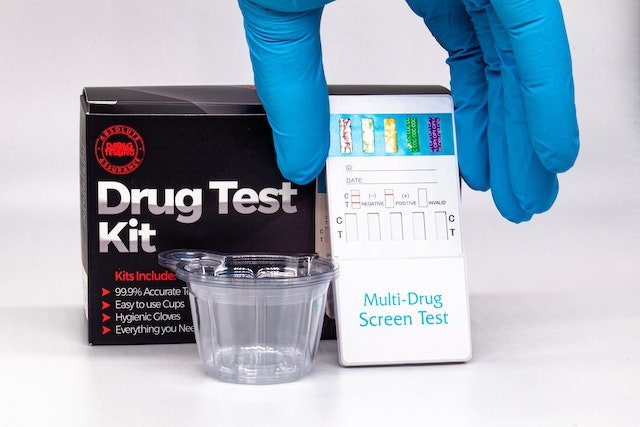What Drugs Disqualify You From Being A Police Officer?
Certain substances can prevent individuals from being police officers because of their influence on integrity, judgment, and public security. In general, the use of illegal drugs, which includes marijuana, as well as various other substances that are controlled, can be an element that disqualifies. Furthermore, the misuse of prescription drugs or other substances such as opioids could cause disqualification. Police departments prefer those with a clean criminal record to ensure they can maintain the law and protect the public.
What Is The Length Of Time A Police Officer Can Be Suspended For Using A Drug

Police officers are in a position of huge accountability within the society. They are charged with enforcing the law, ensuring that order is maintained, and ensuring the safety of the citizens. Therefore maintaining their trustworthiness and integrity is vitally important.
Any breach of trust, which includes drug use, can result in negative consequences for the individual police officer and the entire law enforcement organization.
Disqualification Periods for Drug Use
The length of time an officer in the police force is exempted from duty due to drug use is contingent upon various variables, including the kind of drug, the circumstance of the service, as well as the policy of the agency.
Most of the time, any drug use, particularly if it is substantiated, could result in a mandatory suspension or exclusion. The duration of the disqualification could be anything from a short break, to a permanent exclusion from work.
Temporary Suspension
In the case of a first offense involving drug use, the police officer may be subject to a temporary suspension. The suspension can be for a specific time that the officer must undergo rehabilitation, counseling, or other measures to correct the situation.
The purpose is to allow the officer to change their conduct and show their commitment to upholding the high standards of their profession.
Probationary Period
In certain instances, officers may receive probation for the occurrence of a drug-related offense. During the probationary period, the officer’s behavior is monitored closely, and they might be subjected to further tests for drugs, counseling, or other rehabilitation efforts.
The successful completion of this probationary period will show the officer’s dedication to rehabilitation and willingness to follow the guidelines that law enforcement officers must adhere to.
Permanent Disqualification
In more extreme cases, particularly if the use of drugs is persistent or is a result of illicit drugs, a police officer could be permanently disqualified from the police force. The decision to do this is usually taken to safeguard the integrity and credibility of the police department.
The permanent disqualification of the agency demonstrates its commitment to eliminating those whose behavior undermines confidence and the moral fabric that is law enforcement.
Factors Influencing Disqualification Periods
A variety of factors affect the length of the disqualification process for using drugs among police officers:
Type of Drug
The kind of drug being used could play a crucial role in the severity of the consequences. Illegal substances, like opioids, can result in harsher penalties than prescription drugs that are used without authorization.
Circumstances of Use
The circumstances that led to the incident involving drugs are also considered. If the incident occurred when the officer was not working, the punishments could be more significant because of the possible negative impact on their ability to efficiently fulfill their duties.
Agency Policies
Every Law enforcement organization has different policies and guidelines regarding the use of drugs. Certain agencies may be strict about tolerance. However, others might give more discretion depending on the particular situation.
Officer’s Conduct and History
The officer’s previous conduct and record of disciplinary actions are essential in determining the proper time for disqualification. An ongoing pattern of misconduct or repeated violations could cause a longer suspension.
The Path to Reinstatement
For police officers who’ve faced the possibility of being disqualified due to their use of drugs There is usually an option to be reinstated.
The process of reinstatement typically involves an extensive examination on the progress made by an officer towards rehabilitation, dedication to maintaining an alcohol-free lifestyle, as well as conformity with any mandatory conditions. If the officer is able to meet these standards, they could get a chance to be reinstated to the force.
Being a police officer requires an exhaustive selection process that involves a thorough background investigation. The background check is designed to determine if an applicant is fit to be a police officer and involves looking at the various aspects of their lives which includes their criminal records as well as their financial history and their personal behavior. The use of drugs, particularly illicit substances, is considered seriously during this test.
Impact Of Drug Use On Police Officer Eligibility

The fact that someone has a past history of drug abuse doesn’t necessarily mean that it disqualifies the person from becoming an officer in the police force. It is, however, crucial to recognize the fact that police departments prefer applicants with solid moral character integrity, honesty, and good judgement.
The presence of a history of addiction could raise questions about a person’s ability to live up to these ideals However, it doesn’t necessarily indicate rejection.
Factors That Influence The Decision
The determination of the admissibility of an applicant, if they have a history of substance abuse, is not a simple black and white. Police agencies look at a range of aspects before deciding:
Time Passed Since Drug Use
A major factor to consider when assessing an applicant’s eligibility is the length of time between their last substance abuse. Agents often require evidence of rehabilitation as well as an intention to live an alcohol-free lifestyle.
Type of Drugs Used
The kind of drug that a person has consumed may also affect the eligibility of an individual. Although any past history of drug abuse may cause concern, some agencies might view certain substances as more dangerous in comparison to others.
Frequency and Amount
The frequency and quantity of use of drugs can influence the process of evaluation. In isolated instances, it is possible to view differently from regular usage.
Demonstrated Rehabilitation
Candidates who are able to prove that they’ve completed a rehabilitation program or sought counseling or have taken steps to reduce their substance abuse tend to be viewed positively.
Honesty During the Application Process
Honesty is a must in the process of applying. Doing anything to conceal or conceal the use of drugs in the past can greatly affect the chances of being a police officer.
Steps To Improve Your Chances

If you’ve had an history of using drugs and want to be a police officer There are actions you can take to improve your chances.
Reflect on Your Past Actions
Make time to reflect on your previous actions and choices. Learn the motivations that led to your use of drugs, and how you’ve grown in the years since then.
Pursue Rehabilitation
Involving yourself in counseling or rehabilitation programs will show your dedication to personal development and overcome obstacles.
Maintain a Clean Record
Show a steady history of law-abiding conduct. This will show that your previous actions were an isolated incident instead of a regular pattern.
Be Prepared to Discuss Your History
During background checks or interviews Be honest and ready to talk about your past substance abuse. Highlight what you’ve learned and how you’ve transformed.
Police officers must take quick decisions, maintain their cool in stressful situations, as well as use an unbiased judgment in different circumstances. Therefore, they have to be free of substances that may affect their physical or cognitive ability.
That’s why police departments adhere to strict standards for drugs when they consider the applicants. The standards are set to ensure that those who join the force aren’t affected by addiction to drugs that could compromise their safety as well as the safety of the people they serve.
Drug Testing And Screening Processes

Police departments implement extensive screening and testing for drugs to assess the drug history of potential applicants. The tests are intended to determine the presence of different substances, such as illegal substances as well as prescription medications. The procedures and protocols can differ between different agencies however, they typically require multiple steps to ensure reliability and accuracy.
Initial Screening
The process generally starts with a drug test. This may involve an urine, blood or hair follicle examination. The purpose is to detect recent use of a drug and substances that may cause concerns.
Comprehensive Drug Panels
Police departments often employ extensive drug panels that examine a variety of substances. These panels are able to detect commonly used street drugs including cocaine, marijuana and methamphetamine along with certain prescription drugs that may hinder the ability of an officer.
Regular and Random Testing
In addition to the pre-employment screening Many police departments also conduct random and regular drug tests on their employees. The purpose of this testing is to stop the abuse of substances and ensure that officers are completely drug-free throughout their entire career.
Zero Tolerance Policy
Most police agencies have the policy of zero tolerance in relation to police officers using drugs. It means that even tiny traces of illicit substances could cause severe consequences which could include being removed of the police force. The reason for this policy is to preserve the trust of the public and their faith of law enforcement.
Factors Considered In Drug Standards Evaluation

In assessing an applicant’s criminal background, police departments consider a variety of factors:
Timeframe
The agencies usually look at how recently an applicant has used drugs. Although policies can differ however, a certain amount of abstinence is typically needed before an applicant will be considered.
Type of Substance
The kind of drug used could also affect the assessment. Some organizations may be more accommodating with specific prescription medications, in particular when they are under the supervision of a medical professional.
Pattern of Use
A pattern of frequent or regular use of drugs could raise questions about the commitment of an applicant to a drug-free life. The agencies can closely study the pattern of use of drugs to determine whether they’re suitable.
FAQ’s
What drugs can disqualify you from being a police officer?
The drugs that can disqualify you from becoming a police officer typically include illegal drugs and certain controlled substances. This can include substances such as marijuana, cocaine, heroin, ecstasy, methamphetamine, and other illicit drugs. Additionally, misuse or abuse of prescription medications can also raise concerns.
Can past drug use disqualify you from becoming a police officer?
Past drug use can be a disqualifying factor, but it often depends on the time elapsed since last use, the frequency of use, and the type of drug. Many law enforcement agencies have specific guidelines regarding the duration of time that must have passed since an individual’s last drug use.
What if I’ve experimented with drugs in the past?
Experimenting with drugs in the past might not automatically disqualify you, but it can still be a factor that’s considered during the background investigation process. Agencies often assess the extent of your drug use, how long ago it occurred, and whether it was a one-time occurrence or a pattern of behavior.
Are there any exceptions for marijuana use, considering its changing legal status?
Some police departments might take changing marijuana laws into account, especially if it’s been used recreationally in states where it’s legal. However, federal law still classifies marijuana as a controlled substance, and law enforcement agencies often consider federal regulations as well.
What if I’ve used drugs but completed a rehabilitation program?
Completing a rehabilitation program can demonstrate your commitment to overcoming past issues, and some police agencies might consider this positively during the hiring process. However, it’s important to be honest about your past and provide relevant documentation.
Can prescription drug use affect my eligibility?
Prescription drug use itself might not necessarily disqualify you, but it depends on the medication and its potential impact on your ability to perform the duties of a police officer. Some prescription drugs can have side effects that could affect your fitness for duty, so a thorough medical evaluation would likely be conducted.


















